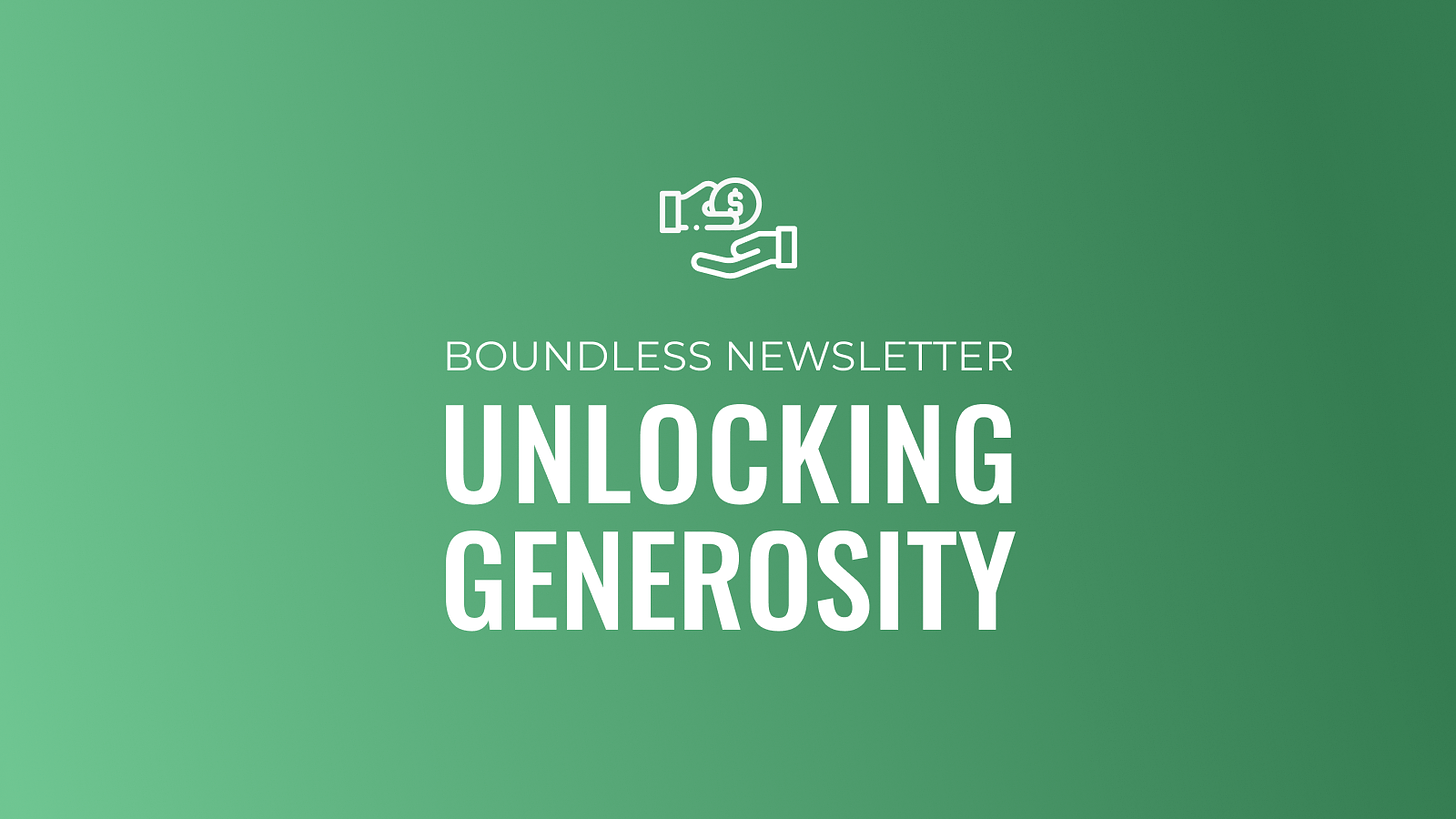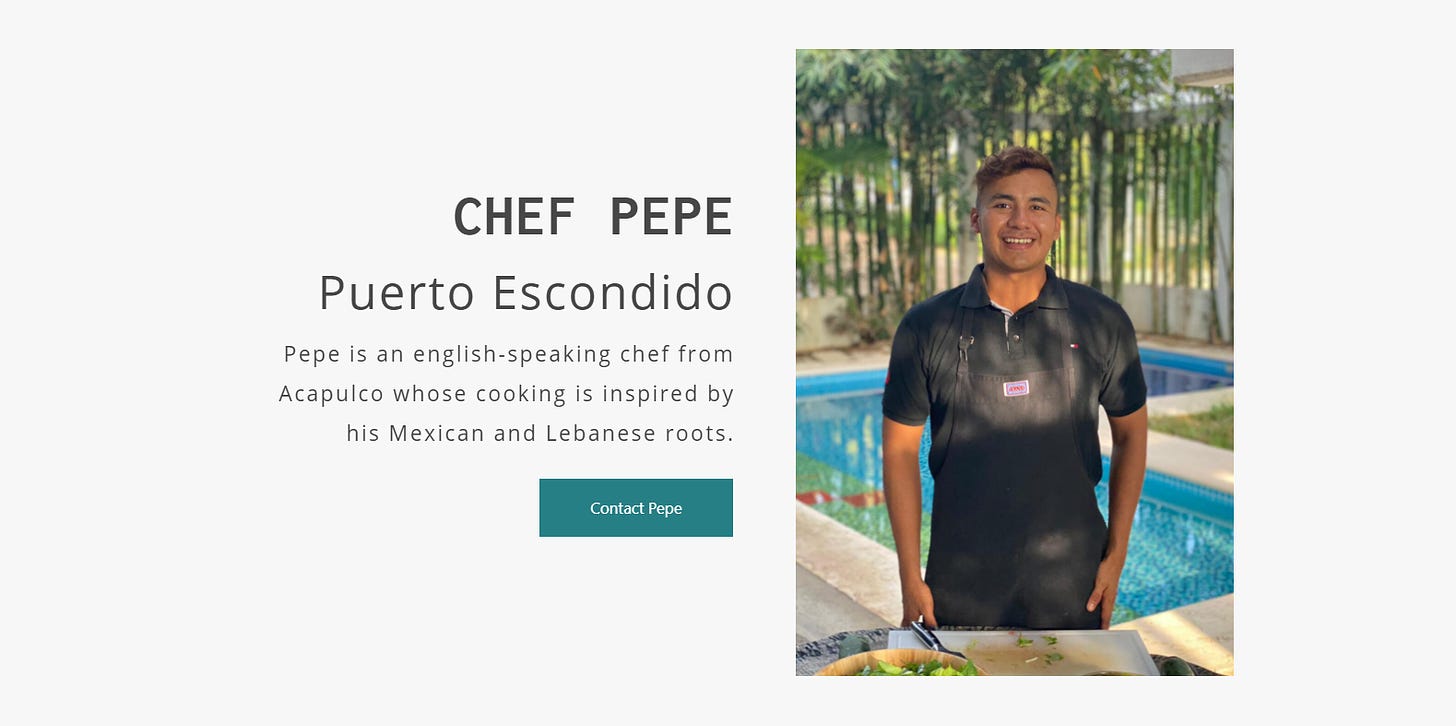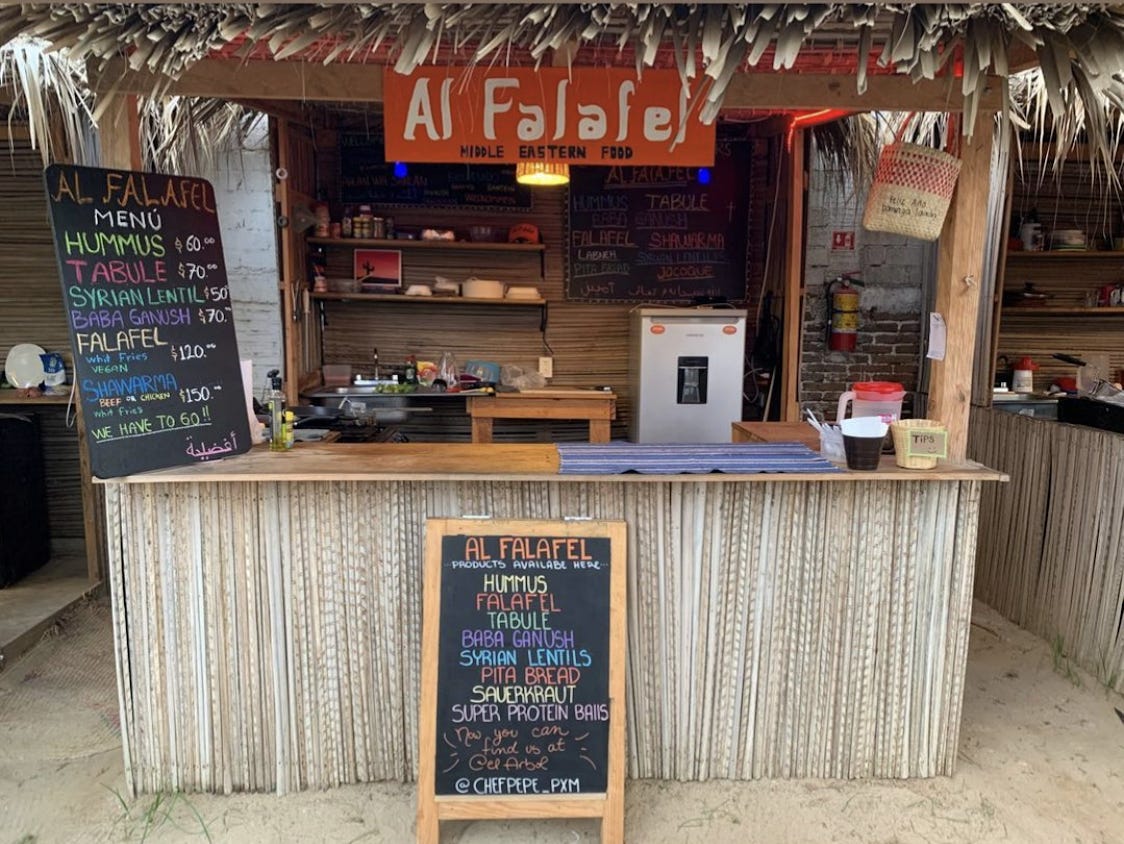Unlocking Generosity | #142
May 22nd, 2021: Greetings from Taipei. We are into the first week of a semi-lockdown here in Taipei. It’s been interesting and a little disappointing watching Taipei make many of the same mistakes like closing down park areas while still allowing indoor dining to happen. They seem to be taking an aggressive approach to tracking, testing and quarantining but I’m guessing we are going to be stuck in a holding pattern for the next few months until vaccines arrive in Taiwan.
I was inspired by Dror Poleg’s excellent newsletter on the future of work and his video on how he makes his own graphics in Figma, so decided I would make my own attempt. I’m also experimenting with making these Saturday newsletters a bit shorter and then sending out other random notes with links and other articles I find. Stay tuned.
Thanks to Juliet for supporting the newsletter!
#1 Unlocking Generosity
Over the last few months, I’ve made a number of direct cash contributions directly to individuals1. This builds on a trend of giving away a lot more money in the past few years both in absolute terms and as a percentage of my income and in ways where I don’t give in order to get a tax write-off. I want to make an argument for more people to participate in such acts and explore how our beliefs about money and work might be keeping us from acts of generosity that might make our lives better and more fun.
The way I thought about giving when I started my career was to set aside a small percentage to “worthy causes.” This usually meant institutions like non-profits, educational institutions, and other “legitimate” organizations. I realize now that it’s easier to funnel money through middlemen than give it directly to people because of how we think about money.
My mindset shifted after reading Charles Eisenstein’s Sacred Economics. In the US we default into a competitive consumer mindset, making sure you get paid your worth, find the best deal, “get your money’s worth,” and take any and all steps to avoid getting ripped off or wasting money, which Eisenstein highlights in his book:
In our society we are accustomed to constantly being targeted for the sale. In the world of marketing, we are consumers to be fleeced, objects to be manipulated. Of course then, we unapologetically seek the best deal whenever we can.
From this starting point, it makes sense that we have a hard time doing two things:
Giving money without expectation directly to people
Receiving money from anyone without owing them something back
A marker for success for many people is to declare that they don’t have to rely on anyone. What this really means in today’s world is that they can hire others to do things for them or buy stuff made by people in factories located across the world. The problem with this goal is that you might achieve it and your life becomes an act of asset allocation and scheduling rather than the things that give life meaning.
This is hardly an argument against capitalism. You won’t find that here. But instead, an argument that at the edges we might lean against some of these deeply embedded scripts that are the result of how our economy works and consider experimenting with giving money away in ways that make our life more interesting.
Many of us have gift relationships with our immediate families where keeping an accounting ledger of expenses would seem absurd. However many of us are afraid to take this approach with most other people in our life. I think this is not because we don’t like being generous but because we have enormous expectations and hang-ups about how we think about money. At its best generosity comes with expectation and is not free of it.
Here is Eisenstein again:
One thing that gifts do is that they create ties among people — which is different from a financial transaction. If I buy something from you, I give you the money and you give me the thing, and we have no more relationship after that. I don’t owe you anything, you don’t owe me anything. The transaction is finished. But if you give me something, that’s different because now I kind of feel like I owe you one. It could be a feeling of obligation, or you could say it’s a feeling of gratitude.
When I read this quote I think about Noel, Jordan, and Mike, and their unexpected generosity throughout my journey. Their monetary gifts always seem like much more than a small payment. They were both an invitation to a deeper relationship and a way of them saying “keep going, I believe in you!”
Giving In Mexico
When I was in Mexico we got to know a local chef, Pepe. We met him when we moved into our friend Jonny’s house, who had hired him a month earlier when he was struggling to find work. When we were about to move out I knew that he was desperate to keep making money and I promised him that we would still work with him. During that time the relationship also shifted from a friend to someone that I’d consider part of my gift circle. He was a friend.
That following month, I asked him what his dream was. He said he wanted to make cooking for people a sustainable thing. I told him I wanted to help him make that happen. I bought him a proper knife, helped him build a website, develop a menu of services, took professional pictures and a video, and helped him with some basic business 101. I also gave him his first "paid vacation days” of his life, giving him 3-4 days off, paid. When the month was over, Angie and I were moving into our own apartment and told him we didn’t want to keep using a chef and I could tell that he was a bit worried about money.
As the end of the month approached, he needed repairs on his bike and didn’t have the money to cover it. My friend Travis stepped up and offered to give him cash. I offered some as well. This was positioned as a loan but we both knew it likely wouldn’t be paid back and that was okay. Despite our willingness to help, both of us still had to fight off our old scripts, clinging to an idea of how we wanted him to react to the money. This is the challenge with giving. We have all sorts of emotions and expectations tied up with how we think people should live, save, spend, and appreciate things.
Part of why I wanted to stop working with him was that I believed in him. He was clearly a good cook and thought he could succeed without our support. Within a couple of weeks, Pepe landed his first gig, doubling the pay that we had been paying him and I could tell something had been unlocked. As I came back to Taiwan he kept sending random pictures. New business cards, falafel, and hummus he started selling at a local store, his new brand, and logo, and then this last week, he opened a restaurant.
Although I didn’t have any expectations of monetary return, I did have hopes that Pepe would find his confidence and see how talented he was. My expectation was that he bet on himself and he surpassed this by a mile and it’s been fun to watch.
This is to say that gift-giving is not about learning to give without any expectation, it’s to give in a way that it aligns with a genuine caring about other people.
Questioning Our Default Scripts Around Giving
I’m not writing any of this to brag to you but to make the case that being more generous, expanding our “gift circles,” and finding ways to give directly to people without any attachment to how they react to the money or spend it, we might make our lives more meaningful and interesting.
Consider the following questions. What if you:
Gave 5x what you are comfortable with to someone?
Abandoned the idea of an inheritance or lower your goal of retirement savings by 10% and instead invest that money in people, causes, and learning in ways that might lead to interesting results
Help pay a bill in someone’s life that might be having a hard time?
Give money directly to people who might squander it in ways that will frustrate you just to see how it feels?
Volunteer your skills to help someone on something you might charge for?
I think we are in the early days of an inevitable explosion of one-to-one generosity and a shift in our beliefs around money. Loss of faith in institutions tied with technological tools where everyone will have some form of public digital wallet will make it such that sending money to people directly will become normal.
Most people are tied to the idea that money needs to be “earned,” by hard work. There is value in this belief as it motivates people to contribute to society but it underestimates how much people are driven to do so without any incentive. This belief likely hardened in the 1900s as a sort of cope to deal with the fact that most people had to sell their time for a paycheck and do work that didn’t like. It’s still useful but not as the only lens through which we look at money and work.
Work is much better for most people but we still think that we need to suffer to earn. The problem with this is that we might actually destroy our passion for life along the way. We treat others as if they are consumers rather than friends. We are afraid to give because “what if we get taken advantage of?” or “what if someone wastes the money?” A gift mindset transcends these fears and morphs that question into “what kind of commitment can I make to support someone else?
I’m interested in helping people discover the creativity, passion, and work that brings them alive. If a small or large gift of money can play some part in that I’m interested in exploring how I can experiment with doing so before I reach some level of wealth. Let’s not let our outdated work beliefs keep us from creating deeper bonds and betting on each other while making life more interesting and fun along the way.
To experiment with this, I am going to pick a random person that is subscribed and opened the newsletter this week $50. Let’s see what happens!
If you liked this, you’d enjoy reading about some of the gift economy experiments I’ve done over the last few years, and how I first learned about the gift economy. I also highly recommend Sacred Economics, which Charles offers in the spirit of the gift, here.
👍 That’s It This Week. Thanks For Following. Here’s How You Can Support Boundless
The best way you can support me is to join in the conversation. Share thoughts on Twitter, reply to the e-mail, add comments below and tell me what resonated or what you’d add, or just hit the like button at the bottom!
If you’d like to support further you can become a micro-supporter via Substack or use my affiliate link for some of the platforms I recommend.
Take Ali Abdaal’s self-paced or LIVE YouTube course
Podia - 14 day free trial
Teachable - 14 day free trial
Wealthfront - $5k managed for free
ConvertKit - First 1k subscribers for free
Or if you want to fund my crypto citadel (I’ve been told this is what it’s called), you can send me some crypto here.
I funded a scholarship as part of Steph Smith’s 12 months of scholarships experiment and a fellowship at creator cabins for a person to be named. Should be fun to follow along!







